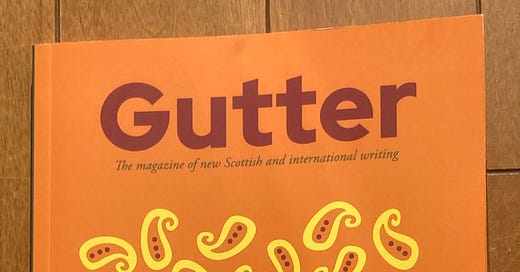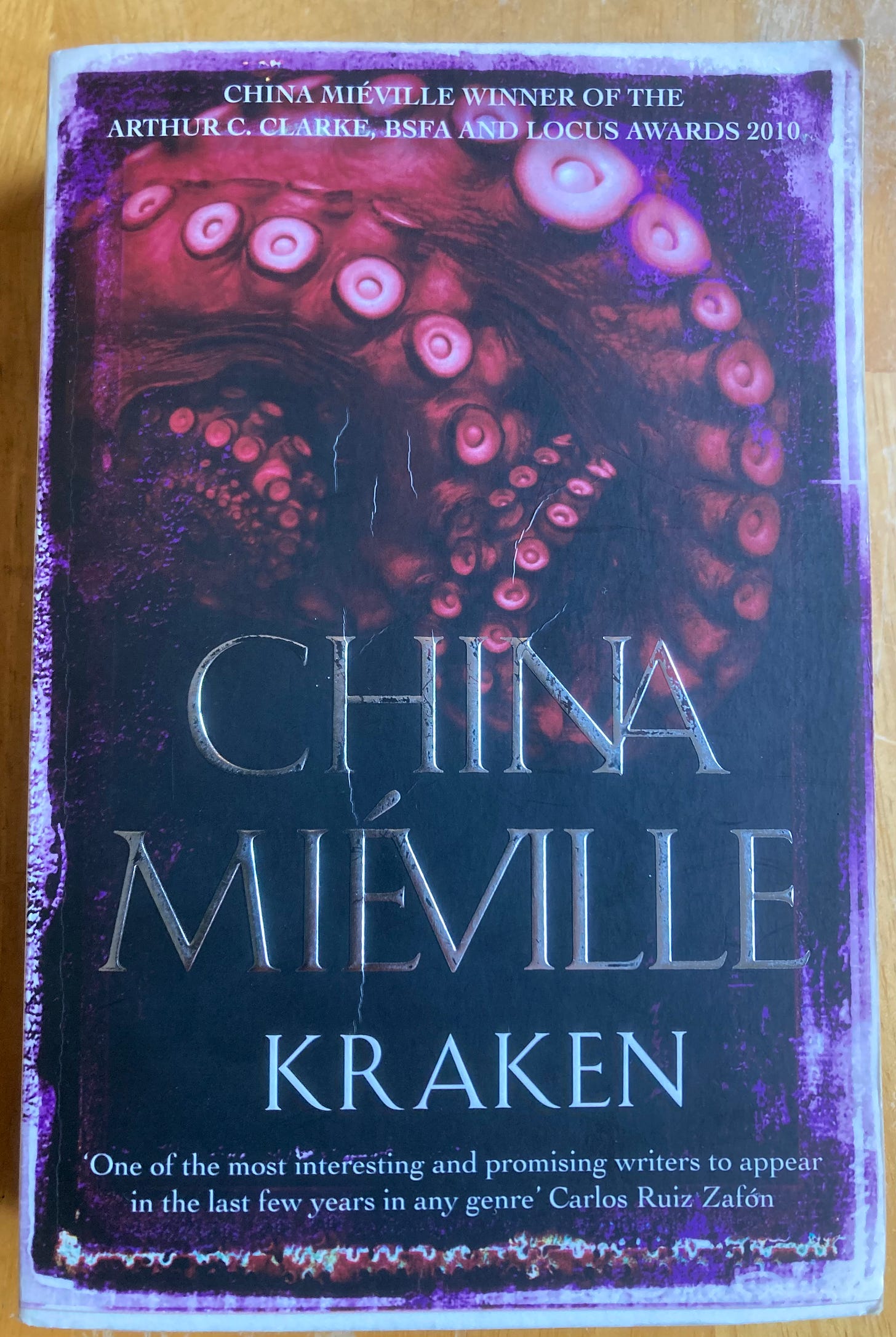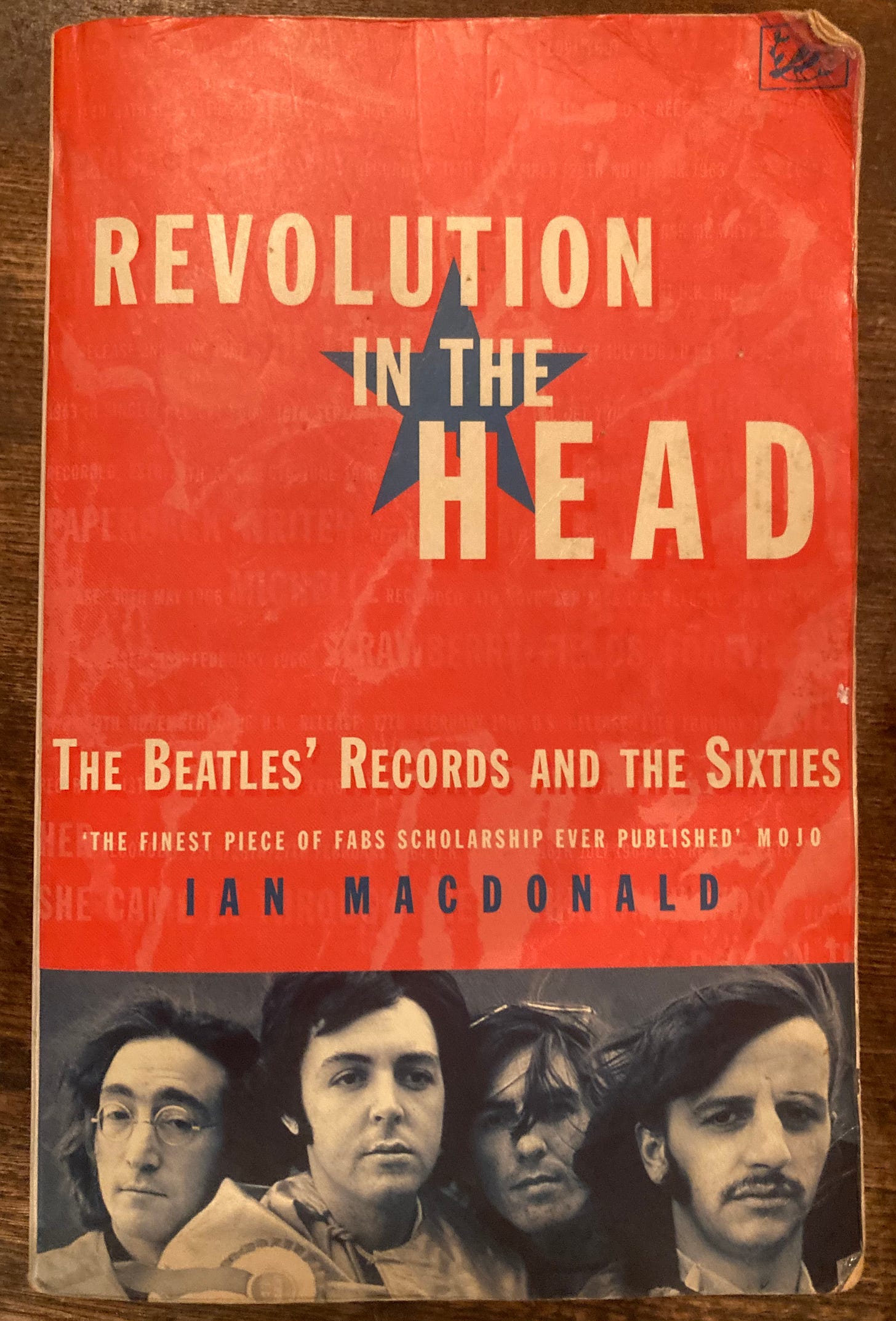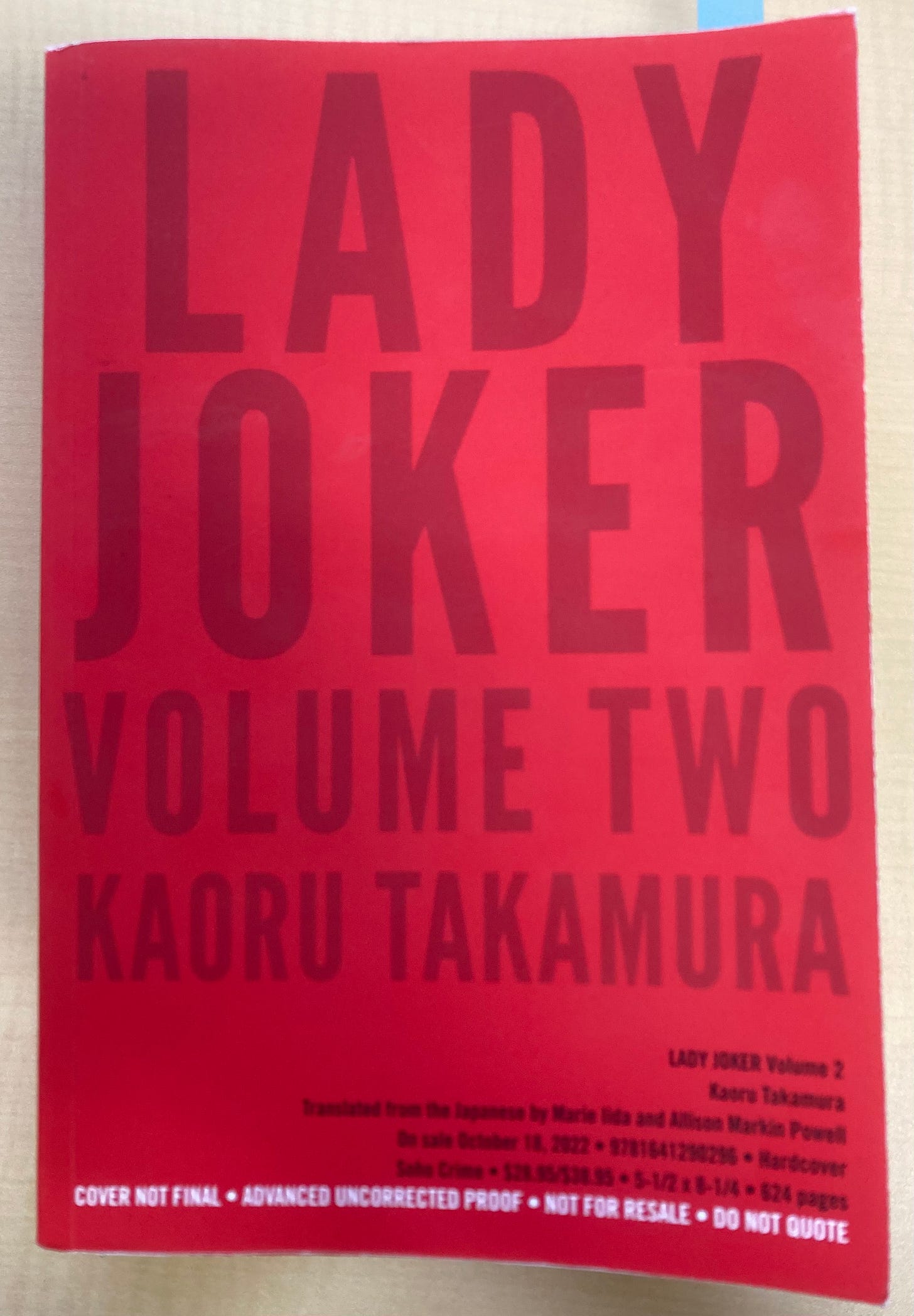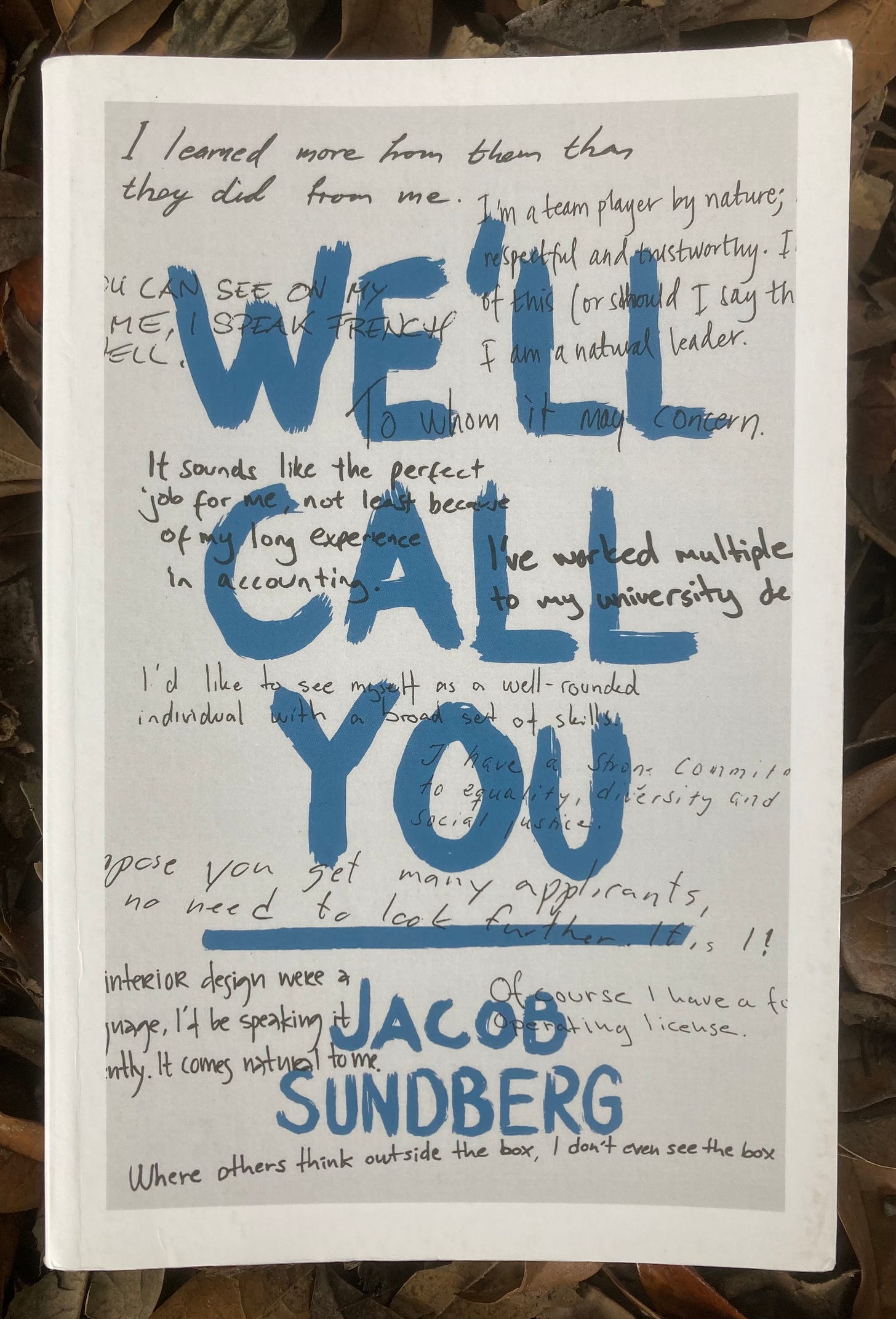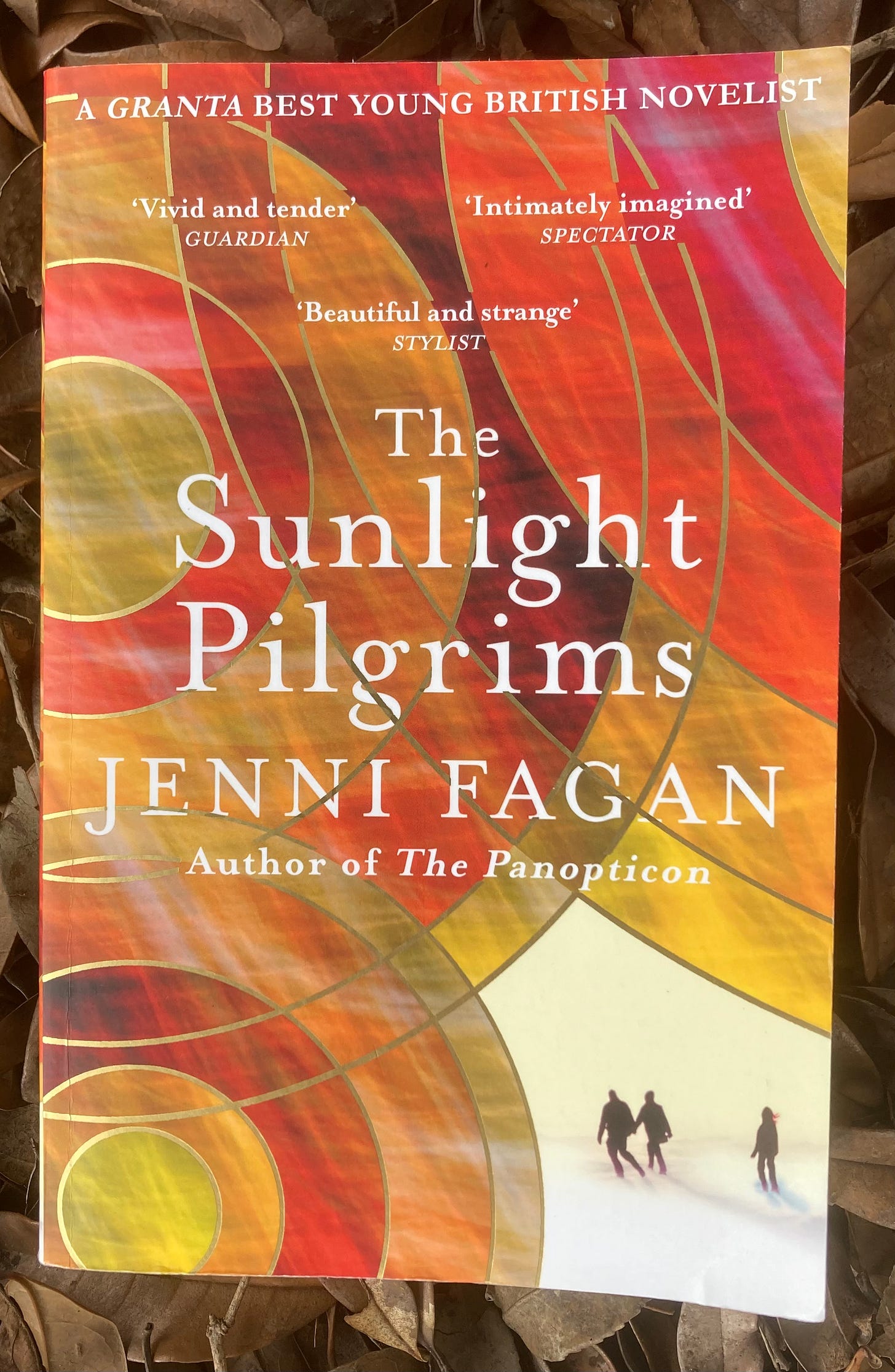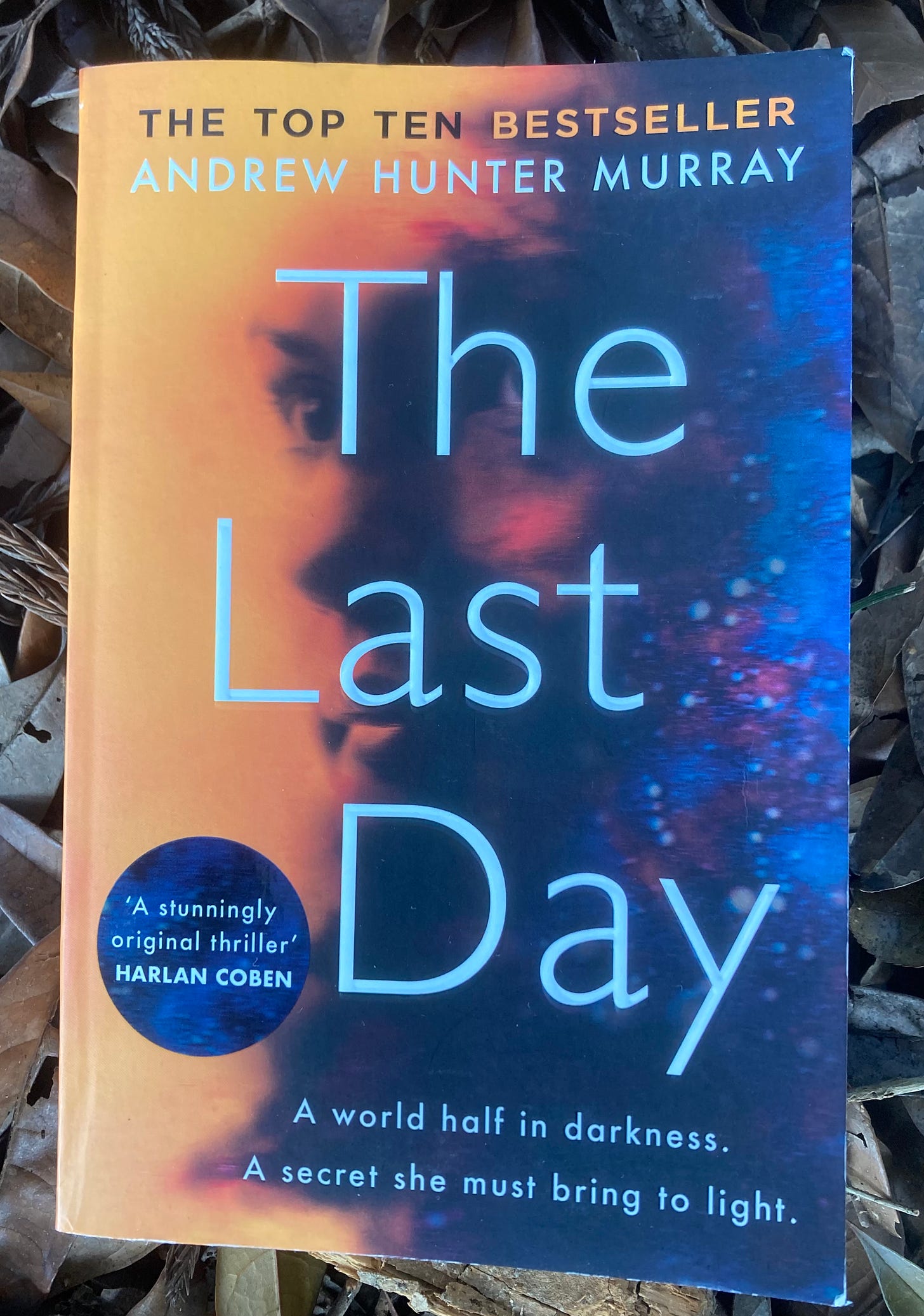September Reads
First off the block was the new issue of my journal of choice, Gutter. Number 26 is built around poets from the Indian subcontinent, exposing me to yet more brilliant writing I probably would never have found by myself which is, after all, the joy of literary journals. Beyond those poets there was new work from old favourites such as Ely Percy and nicky melville, and two writers whose work I will definitely look out for in the future, Alessandra Thom and Rachel Lyon.
Usually when I go hiking and camping I take something appropriate - Gary Snyder, maybe, Linda Cracknell or Robert MacFarlane. Not this time. People and creatures with magical ability charging all over London trying to avert the apocalypse and find a missing pickled giant squid isn’t the easiest mesh with relaxed surroundings but I picked up Kraken while in Tokyo, was hooked from chapter one and couldn’t leave it behind. The sheer number of ideas contained within this book is unfathomable, and this is just one in a career of astounding books. I’ve only scratched the surface of Mieville’s oeuvre (The City and the City is still my favourite) so I’ll be stocking up on more soon.
Less astounding was Ian MacDonald’s song-by-song march through the Beatles’ recorded career. There were some interesting insights here, not least the chronological order in which the songs were written and recorded, and how they fed into each other, but I felt MacDonald’s snide comments and superior attitude to some of the songs was off-putting. While we all have our favourites, dismissing Helter Skelter or All You Need is Love as fodder that shouldn’t have been committed to tape is taking things a bit far
Thanks to Soho Crime I received an advance copy of Lady Joker: Volume Two by Kaoru Takamura. I reviewed Volume One for the Japan Times last year, and I’m interviewing the translators, Allison Markin Powell and Marie Iida, for the paper this year. Lady Joker is one insanely complex and loooong crime novel split into two parts, each of which is over 600 pages. I won’t say much here because my thoughts are already in the first Japan Times piece, and the second will be out not long after this epistle is released into the world.
After claiming last month that Nordisk have a definite style of books they translate and publish, the next I pull off the shelf proves me wrong. We’ll Call You is a collection of short stories translated by Duncan J. Lewis all themed around job interviews. Job interviews gone hideously wrong, I should say. This is a darkly comic collection, starting off stabbingly satirical before become more surreal. I was a little worried with the first story - the tale of a Swedish man interviewing a Swedish man of Lebanese background - because there’s a strain of “satirical” writing where the author takes the idea that the pen is mightier than the sword too far. I’ve read so many bad manuscripts where the author uses his (it’s always a he) pulpit to slay all those wrong thinking people out there. In lesser hands, these POV character studies - the woman only concerned about appearance, the man who truly believes he is a genius, the artist who is too special for ordinary work - could have gone badly awry but Jacob Sundberg’s nuanced portraits skewer while managing to retain sympathy. These interviewees are laughable caricatures but also all too flawed and human.
I’m utterly baffled how this had slipped me by for so long. I’m a fan of Fagan’s other books and a few years ago I wrote an overview piece about Scottish dystopian sci-fi (which I’ll share here at some point, though now I have to update it!) but I had never read The Sunlight Pilgrims. To be fair, it’s not out and out dystopian sci-fi. It’s more mild cli-fi, with a long, hard ice-age type winter coming and society beginning to crumble, but that’s really the backdrop to a domestic drama. There’s a paper to be written on the place of the Highlands in the imagination of SF writers from the Central Belt - chapter two of most Scottish end-of-the-world novels involves the protagonist heading northwest for the remote mainland or out to the islands which makes me think that in reality the first thing that would happen in the face of an apocalypse is the erection of a wall down the Great Glen. Maybe someone should write a post-apocalypse novel set in a ghost town Glasgow that has been abandoned by everyone heading for Skye. This is a moving account of grief, loneliness, and how community grows on the fringes.
I can’t decide if I am disappointed by The Last Day or vindicated. For those who don’t know, Andrew Hunter Murray is one quarter of No Such Things as a Fish, a podcast by the team behind the TV show QI. He’s also a successful comedian and part of the improv comedy group Austentatious (which is top of my list whenever I next get to London). I’m a big fan of the podcast and his other work, so when I heard he’d written a post-apocalyptic novel (there’s a lot of it about, can’t think why) my interest was piqued. At the same time, I had that knee jerk reaction many authors do when someone who is famous in another field publishes a novel: a sinking, envious, annoyed feeling. In many ways it’s a childish, petty reaction, but it’s also partly justified. Publishing is a struggling industry, already risk averse and now terrified to take a chance on new writers. Many talented writers are going out of print, having books turned down, not having contracts renewed. As one writer said to me, “I always knew it was hard to get published. I had no idea how hard it was to stay published.” But if you’ve got 1.5 million listeners to your podcast, then you’re going to get a book deal. You are not a financial risk, you can guarantee sales. If even 1% of your existing audience buys the book, it’s a huge bestseller. Now, that doesn’t make it a bad book. Publishers and editors have professional reputations to preserve. But it often means there is a compromise, and that’s the case here. The Last Day is decent, but it’s not great. It’s MOR dystopia, which passes the time nicely but does little more than that. What frustrates me is that I regularly work with unpublished SF novelists who write way, way better than this but will never be published in the current climate. I’ve written countless reports and had countless Zoom conversations telling writers that unless they drastically improve the manuscript they won’t even get into consideration. Manuscripts which in draft form are better than this in its final form. Murray’s book is full of all of those failings for which unknown writers are quickly rejected. Over-reliance on world building rather than story telling in the early chapters? Check. Cardboard characters there to further the plot? Check. Exposition dumps and contrived conversations? Check. Handy coincidences every few chapters? Check. Deus ex machina ending? Check, check, check. My problem isn’t that Murray, as a successful comedian, shouldn’t be allowed to publish his novel - of course he should - my problem is that his existing audience means he’s not held to the same standards as complete unknowns. If this manuscript had been submitted by a writer without a reputation, it would never have got beyond the sample chapter and pitch stage. Factor 1.5 million listeners and suddenly it jumps to the top of the pile. Is some of this professional jealousy? Yes, of course. But that doesn’t mean my comments are unjustified. Publishing isn’t a level playing field and The Last Day is just the latest example of that. None of that is Murray’s fault, or his editors, and I wish them all the best. My frustration is with the system, not the people directly involved. When sales are everything and the big decisions are taken by the marketing department, not the editorial department, this is what happens. Ten years ago everyone was talking about “the democratisation of publishing.” We hoped for a meritocracy but I’ve yet to see it.

